
2020-2021 Annual Data Report Published

The number of underrepresented students in veterinary medicine (22.2 percent) is higher than ever before and total enrollment grew by three percent over the year before. Those are just two of the highlights gleaned from the AAVMC’s 2021 Annual Data Report, now available on the AAVMC website.
Constructed from the vast datasets collected during the annual Comparative Data Report (CDR) project, the ADR provides the public with a comprehensive statistical portrait of the world of academic veterinary medicine.
Other highlights from this year include:
- Tuition for non-resident students remained steady; tuition for residents increased by 3.7%.
- The percentage of DVM students graduating with zero debt declined by 1%.
- The percentage of men enrolled in DVM programs remained steady, though the percentage of men applying continues to decline.
- On average, tuition makes up 18.7% of a CVM revenue, while spending on teaching, academic and student supports expend 23.9% of the expenditure budget.
Data is available on enrollment, diversity, applicants, tuition and debt, personnel, budget, and other areas.
The report is produced on a dynamic, interactive software platform that enables users to explore information based upon specific areas of interest in academic veterinary medicine.
The empirical data supports research studies, scholarly examinations, general inquiries and presents useful information for the media and the public.
For more information about the program, please contact Senior Director for Institutional Research and Diversity Dr. Lisa Greenhill at 202-371-9195 (ext. 147) or lgreenhill@aavmc.org or Associate Director for Institutional Research and Diversity Kendall Young at 202-371-9195 (ext. 180) or kyoung@aavmc.org.
Outgoing JVME Editor-in-Chief Dr. Daryl Buss Reflects on an Auspicious Career
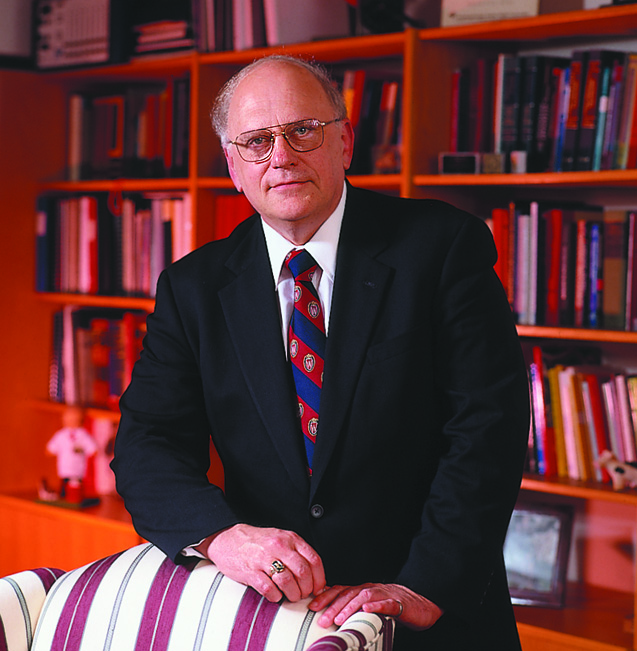
As young person who dreamt of becoming a Doctor of Veterinary Medicine (DVM), Daryl Buss never envisioned himself as the editor of an academic journal. But that role was the capstone of a distinguished career that included clinical practice, teaching, major advancements in cardiovascular research, leadership of academic institutions and the AAVMC, and ultimately, Editor in Chief (EIC) of the AAVMC’S Journal of Veterinary Medical Education (JVME).
Dr. Regina Schoenfeld-Tacher from the North Carolina State University College of Veterinary Medicine succeeds Dr. Buss as the JVME EIC effective July 1. But after almost a decade of leadership, Dr. Buss can look back at a tenure that brought steady progress, growth, impact and advancement. Among many achievements, the JVME has become more international in scope and successfully transitioned from a primarily print publication to a hybrid print/digital model with expanded open access.
He sees this as a good time to pass the journal on to a new generation that will negotiate change as he has, always adapting to societal and technological transitions with agility and a commitment to solid scholarship.
Under his tenure, the journal instituted an AAVMC Notes section to “enhance awareness of the AAVMC,” and convey information about AAVMC-related news and events. He oversaw the publication of theme issues on relevant topics such as a 2017 issue on “Mental Health and Well-Being of Students and Graduates of Veterinary Medical Educational Programs” and a 2019 issue on “Inter-Institutional Collaboration in Veterinary Medical Education.”
The journal saw such an increase in the number of submitted manuscripts that it expanded from four to six issues per year to accommodate the need. In addition, the number of downloaded manuscripts doubled from about 20,000 in 2012 to more than 44,000 in 2020.
As EIC, Dr. Buss said that he has particularly enjoyed working with enthusiastic and energetic junior faculty, both in the United States and internationally, who have “given the journal a wider perspective and are open to new ideas.” He credits the journal’s editorial board with being a valuable sounding board. “Even when we had different perspectives, we were able to have good, open discussions and eventually get everyone on the same page.”
Dr. Buss said his career path has been less about planning and more about the emergence of serendipitous opportunities, where momentous career decisions might be made over a cup of coffee. For that reason, despite the practicality of goal setting, he encourages students and young veterinarians to always be open to unexpected opportunities.
“Mentorship programs are great, but students should also be proactive,” he said. That would include identifying respected faculty and those who work in interesting fields and expressing interest. He encourages students to become aware of careers in all facets of veterinary medicine, including academia, government, public health and industry.
Among the many changes that he has seen in academic veterinary medicine throughout his career, he considers an increased emphasis on teaching as a skill set, and academic research supporting that skill, as one of the most positive developments. He started out in private practice but the decision to pursue further education resulted in the discovery that he loved cardiovascular research. That discovery led to a career in academia where, funded by organizations like the National Institutes of Health and the American Heart Association, he made substantial contributions to the body of knowledge in cardiology, authoring or co-authoring 74 publications in academic journals.
He served as professor and chair of the Department of Physiological Sciences at the University of Florida College of Veterinary Medicine, with a joint appointment in the College of Medicine’s Division of Cardiology, and then for 18 years as the dean of the University of Wisconsin School of Veterinary Medicine. He had previously been named Dean Emeritus and Professor Emeritus at Wisconsin when he started serving as JVME’s EIC in 2013.
He has also made lasting contributions to academic veterinary medicine through his long association with the AAVMC, where he served as a member of the Board of Directors and as president in 2000-2001.
He landed at JVME partly as the result of encouragement from others. “I had been a dean for a long time, so I knew all of the deans,” he said. “I’ve always valued critical feedback and I valued their advice and opinions. So even though it wasn’t on my target list, when others suggested the possibility, I was intrigued.”
As usual, he was open to the unexpected. And as has proven to be the case for him and for JVME readers, wise counsel paid off.
Dr. Paul Lunn, Current AAVMC President, to Leave NCSU-CVM, Lead Liverpool SVS in January 2022

Dr. Paul Lunn, current President of the AAVMC and dean of the North Carolina State University College of Veterinary Medicine, is leaving to become dean of his alma mater, the University of Liverpool School of Veterinary Science, in January 2022.
“Dr. Lunn has made important and lasting contributions throughout his years of leadership with the AAVMC and we are extremely grateful for all he has done for academic veterinary medicine,” said AAVMC CEO Dr. Andrew T. Maccabe. “I know he will continue to promote and advance veterinary medical education as Dean at the University of Liverpool.”
In accordance with AAVMC bylaws, President-elect Dr. Susan Tornquist, dean of the Oregon State University College of Veterinary Medicine will become AAVMC President effective with Dr. Lunn’s departure from NCSU.
During Lunn’s time as NCSU’s fourth college of veterinary medicine dean, the college grew its class size from 80 to 100, increased faculty positions by 33%, and grew hospital caseload by 40%, reflecting an expansion of the hospital’s innovative and comprehensive specialty services.
For more detailed information, please see this news release from NCSU.
CSU Veterinary Healthcare Team Symposium Slated July 21-22, 2021
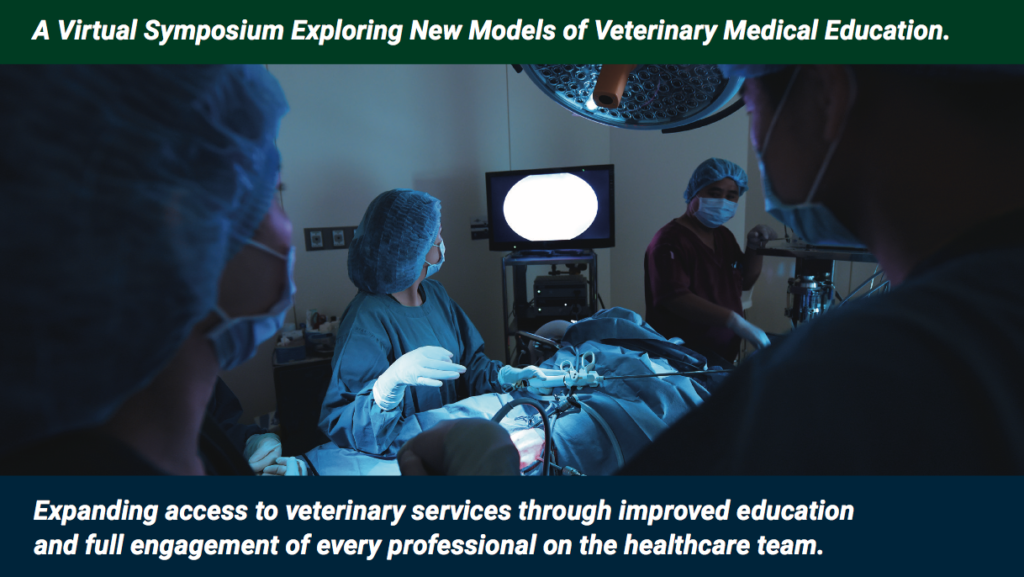
The AAVMC and the Colorado State University College of Veterinary Medicine and Biomedical Sciences are presenting a virtual symposium focused on how educational changes can help enhance team-based healthcare delivery systems in the clinical practice environment July 21-22, 2021 from 2 to 5:30 p.m. (Eastern time).
“Leading Change: Emphasizing Team-based Veterinary Care” will examine opportunities for enhancing educational programs for DVM students and veterinary nurse/technicians in a way that can broaden, deepen and expand access to clinical care.
The symposium is targeted at veterinary educators, veterinary nurse/technician educators and other thought leaders and will focus on a competency-based veterinary educational framework.
Topical areas to be covered include an examination and assessment of the current operating environment for veterinary nurse/technicians, including work roles and responsibilities, retention and compensation, and existing models from industry.
Toward enhancing teamwork, desired core competencies for all DVM graduates will be considered, along with effective models from veterinary teaching hospitals.
The symposium will look at emerging innovations in veterinary nurse/technician education, including specialization, and models of veterinary nurse/technician education from AAVMC member institutions.
It will also consider diversity, equity and inclusion and the veterinary healthcare team; competency-based veterinary/nursing education; potential MS programs in veterinary clinical care; and practice act considerations.
For information on this symposium and to register, please click here.
Role of Healthcare Professionals and Stress Examined in New AAVMC Monograph
Healthcare professionals are often providing care to individuals affected by trauma, violence, abuse, death, etc. – along with a myriad of other physical and mental health issues. The relationship between veterinary professionals and their patients and clients is often very close. This proximity can expose professionals and staff to the distress and trauma experienced by the animals and individuals they help. Empathy and the desire to alleviate pain and suffering can dramatically enhance the connection between patients/clients and healthcare professionals. Unfortunately, this connection can also have a serious psychological impact. Learn more about how individuals and organizations can discuss and address work-related stress and trauma.
AAVMC 2022 Annual Conference Call for Proposals
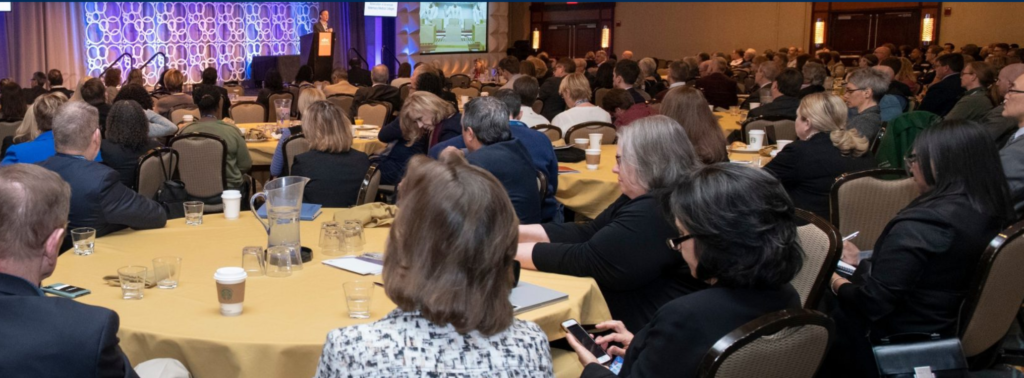
The AAVMC is pleased to announce an exciting opportunity for faculty and students to share their work and ideas during the Catalyze 2022 Conference, March 3-5, 2022, in Washington, D.C. at the historic Watergate Hotel. The deadline for submitting proposals for educational breakout sessions is September 13, 2021.
The Conference Program Committee will consider proposals in the following categories:
Diversity, Equity, and Inclusion
-Recruitment, Climate & Curriculum
Wellbeing
-Promoting a climate of wellbeing
Faculty Professional Development
-Retention, Leadership, Growth Opportunities
Research and Discovery
-Growing & Retaining Research Faculty to Work in Collaborative Environments
Education
-New Education Models, Outcomes Based Education, & Career Preparation
Post-Pandemic Reorientation
-Increasing Capacity & Leveraging One Health Opportunities
Prospective speakers are encouraged to consider the following attributes as they formulate their proposals for educational sessions:
- Evidence-based presentations that examine research and survey trends
- Presentations that feature interactive learning and/or small group discussion
- Proposals from collaborative, multi-institutional teams
- Incorporation of interprofessional perspectives
- Proposals with an international or global focus
For more information on how to submit a proposal, please contact (??)
Click here to submit proposal.
Ontario Veterinary College Professor and Co-founder of AAVMC’s Primary Care Veterinary Educators Group Dr. Jason Coe Recognized for Dedication to Human/Animal Bond
The American Veterinary Medical Association (AVMA) has named Dr. Jason Coe from Ontario Veterinary College (OVC) as the recipient of the 2021 Bustad Companion Animal Veterinarian of the Year Award.
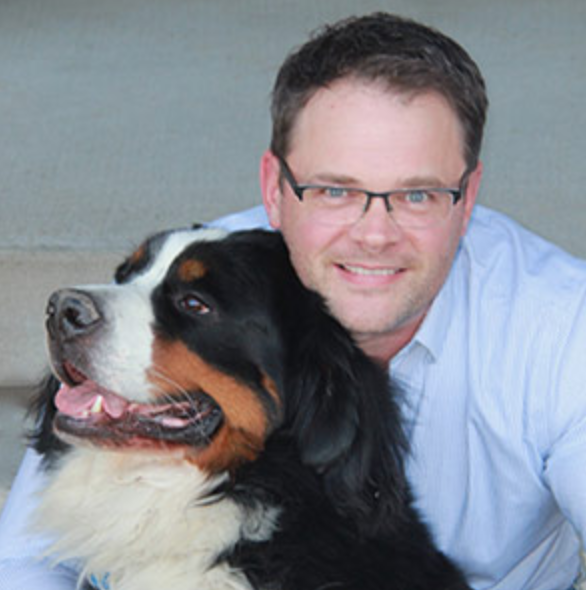
Named for the late Dr. Leo K. Bustad, former president of the Delta Society and dean of the Washington State University College of Veterinary Medicine, the award recognizes the outstanding work of veterinarians in protecting and promoting the human-animal bond.
Dr. Coe is a professor in OVC’s Department of Population Medicine and a specialist in veterinary clinical communications. He has established an active research program examining human-animal relationships, as well as the role of interpersonal communications on veterinary care outcomes.
Dr. Coe was also instrumental in cofounding and leading the AAVMC’s Primary Care Veterinary Educators (PCVE) group. Since its founding in 2010, PCVE has developed into a leading international organization whose mission is to enhance primary care programs at colleges of veterinary medicine and to develop exceptional primary care educators to prepare career-ready veterinarians.
“Dr. Coe’s devotion, enthusiasm, collegiality and leadership of the AAVMC’s Primary Care Veterinary Educators substantially influenced the future directions of primary care veterinary education worldwide,” said AAVMC Chief Executive Officer Dr. Andrew T. Maccabe. “He’s made enormous contributions in academic veterinary medicine and all of us in the AAVMC are pleased to see him recognized with this prestigious award.”
In announcing the award, the AVMA said that Dr. Coe has made significant contributions to enhancing animal welfare and behavior, promoting adoption, and preventing surrender. Specifically, his work investigates issues related to urban cat populations, puppy socialization, dog walking, dog fear and aggression, and rabbit care.
CBVE Presents Town Hall Series
The AAVMC’s Council on Outcomes-based Veterinary Education (COVE) will be presenting a CBVE Town Hall Series during Summer 2021 designed to increase awareness about educational opportunities about the program.
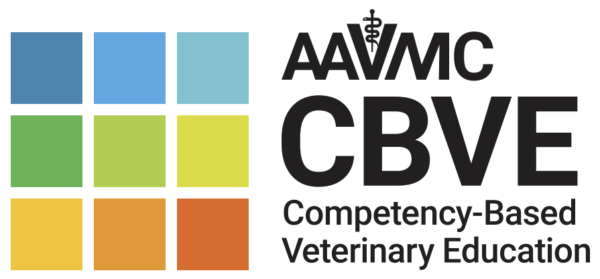
Zoom meetings are being organized on June 17 from 2-3 p.m. central time, and August 5 from 2-3 p.m. central time. Registration information will be available in a future edition of the Vet-Med Educator.
The CBVE group developed a brief survey to determine status and future plans for CBVE implementation, as well as any faculty needs which could help support the process.
The CBVE group has also developed a more fully developed website which outlines the program and current activities. That site is available via link from the AAVMC’s CBVE site.
Governmental Affairs Leaders Examine Biden Administration First 100 Days in Webinar Recording
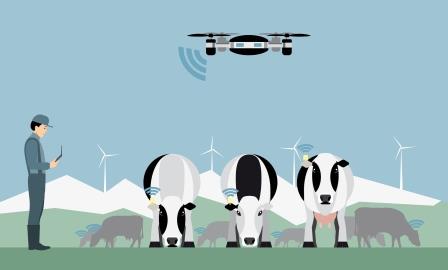
A panel of government relations, policy experts and educators, including AAVMC Director for Governmental Affairs Kevin Cain, connected on a webinar in late May to discuss Biden Administration actions and plans related to higher education, agricultural research and science/STEM education.
In addition to Cain, panelists included Dr. Catherine Woteki, President of the Charles Valentine Riley Memorial Foundation, university professor and former Chief Scientist and USDA Under Secretary for Research, Education, and Economics (REE).
Also participating were Lindsey Tepe, Director of Governmental Affairs for the Association of Public and Land-grant Universities (APLU) and former Fellow with Senate Health, Education, Labor, and Pensions (HELP) Committee Ranking Member Patty Murray’s staff; and Zara Day, Senior Director of Waxman Strategies a Washington, D.C. based public affairs and strategic communications firm. Day is an attorney specializing in health policy.
If you are interested in watching this webinar, please click here. You will need to type in this passcode to access it: +qu1GQ@9 (do not copy and paste it as it will not work). If you have any difficulties accessing this recording, please contact AAVMC Administrative Assistant Christian Elkins at 202-371-9195 (extension 127) or celkins@aavmc.org
Release of VMLRP Fiscal Year 2020 Annual Report
The National Institute of Food and Agriculture (NIFA), part of the USDA, has released its Veterinary Medicine Loan Repayment Plan (VMLRP) 2020 annual report.
The document provides a detailed review of the program, applicant and awardee statistics, DVM programs with funded alumni, shortage areas awarded, and a statement regarding the impact of COVID-19 on the program.
Food animal veterinarians are critical to maintaining a healthy, secure, and safe food supply. Today, there is a critical shortage of food animal veterinarians in both private and public practice, particularly in rural communities in the U.S. and insular areas.
The U.S. Department of Agriculture’s National Institute of Food and Agriculture (NIFA) Veterinary Medicine Loan Repayment Program (VMLRP) provides approximately $7.6 million per year in funding to help eligible veterinarians offset a portion of debt incurred in pursuit of their veterinary medical degrees in return for their service in certain high-priority veterinary shortage situations.
Biden Administration Releases Fiscal Year 2022 Budget Proposal and AAVMC Priorities

The Biden Administration’s proposed Fiscal 2022 budget was released on Friday, June 4.
While the presidential budget is an important marker for many programs, according to AAVMC Director for Governmental Affairs Kevin Cain, Congress ultimately makes the final spending decisions.
That said, here are how certain high-priority programs for the AAVMC have been treated in the budget:
The Veterinary Medical Loan Repayment Program (VMLRP) has been funded at $8.5 million, which is the same as fiscal year 2021).
The National Institute of Food and Agriculture’s (NIFA) Veterinary Services Grant Program (VSGP), which works to alleviate veterinary shortages in underserved areas and support veterinary medical services, is funded at $3 million, the same as fiscal year 2021.
NIFA’s Agriculture and Food Research Initiative (AFRI) has received $700 million, which is a $265 million increase over fiscal year 2021.
The budget proposal includes $52 billion in funding for the National Institutes of Health, which represents an increase of just over $9 billion from the 2021 fiscal year.
The AAVMC and the AVMA will be working together to successfully steward the programs with Congress throughout the appropriations process.
Federal research funding proposed for areas important to the AAVMC can be examined in this chart produced by RESEARCH AMER!CA.
Association of Veterinary Advancements Professionals (AVAP) Annual Conference July 27-28, 2021
The Association of Veterinary Advancement Professionals (AVAP) will present their 2021 AVAP Expo virtually on July 27-28 from 10 a.m. to 2:30 p.m. (Central time). The meeting will feature individual program sessions for development, communications and alumni relations professionals.
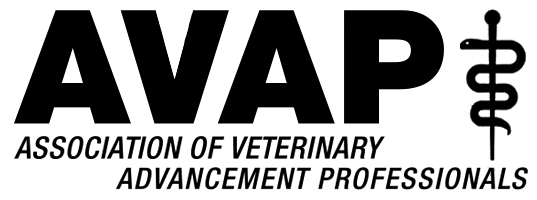
On opening day, a keynote address entitled “Connection & Belonging: CVM Student & Alumni Mental Health and Wellbeing” will be presented by Dr. Pamela Linden, founding President of the International Association of Veterinary Social Work and a faculty member at both the State University of New York at Stony Brook and the University of Tennessee. Linden is co-editor of the forthcoming “The Comprehensive Guide to Interdisciplinary Veterinary Social Work, expected to be published in 2022.
Established in 1998, AVAP now includes about 300 institutional advancement professionals working in academic veterinary medicine. The group became formally affiliated with the AAVMC as a component organization in 2018.
For registration information, please click here.
In the News
These Sniffer Dogs are Learning to Smell the Coronavirus
National Geographic
“Electronic Nose” Accurately Sniffs Out Hard-to-Detect Cancers
Technology
Pet Ownership Surged During COVID-19. Veterinarians are Exhausted
Philadelphia Inquirer
Researcher Studies Rise of Tick-Borne Diseases in Midwest
Kansas Ag Connection
Five Reasons Why You Don’t Need to Panic About Coronavirus Variants
MIT Technology Review
A First: Minnesota Researchers Develop Field Test for CWD
Outdoor News
Vet Tech Pioneer Brings Expertise to America’s Veterinary Colleges
The SPIRIT
Episode 52: Navigating Veterinary School While Battling a Disability
dvm360
Plans for New Vet School in Scotland
vnonline
Drugmakers Rush to Enter Pet Healthcare Market
Korea Biomed
Gender Wage Gap Persists in Veterinary Medicine
VIN
Texas Tech Vet School Receives Major Gift
KFYO Newstalk
Creating Accessible Veterinary Spaces
JAVMA News
Animal Disease Labs Stepped Up During COVID-19 And Could Help Prevent The Next Pandemic
WSIU/NPR
Tuberculosis is a Rising Concern in U.S. Cattle Herds
Dairy Herd Management
From Our Members
Cornell Administers One Million COVID Tests, Dr. Fauci Lauds Effort
Cornell University
Auburn University Awarded $1.5 Million National Institutes of Health Grant to Broaden Student Participation in Biomedical Sciences
Auburn University
Donors Like Larry Save Lives
Washington State University
Helping Margie Beat the Odds
Washington State University
RVC Study Sets the Agenda for the Future of Canine Epilepsy Research
Royal Veterinary College
Fighting on all Fronts: MSU Alumnus Helps Develop COVID Vaccine, Connects Communities With Vaccine Information
Michigan State University
Nineteen Students Spend the Summer Conducting Research as Part of the Veterinary Summer Scholars Program
Louisiana State University
People in Motion
Dr. Jonathan Hill has been appointed as Principal (Dean) at Murdoch University in Australia.
Dr. Dana N. Zimmel has been appointed as Dean of the University of Florida College of Veterinary Medicine.
Dr. Laura K. Molgaard has been appointed as Dean of the University of Minnesota College of Veterinary Medicine
Dr. Kim Carney has been appointed as Associate Dean for Student Affairs and Admissions at Lincoln Memorial University.
“Like” us on Facebook or follow us on Twitter, LinkedIn, and Instagram:




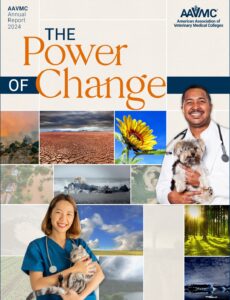
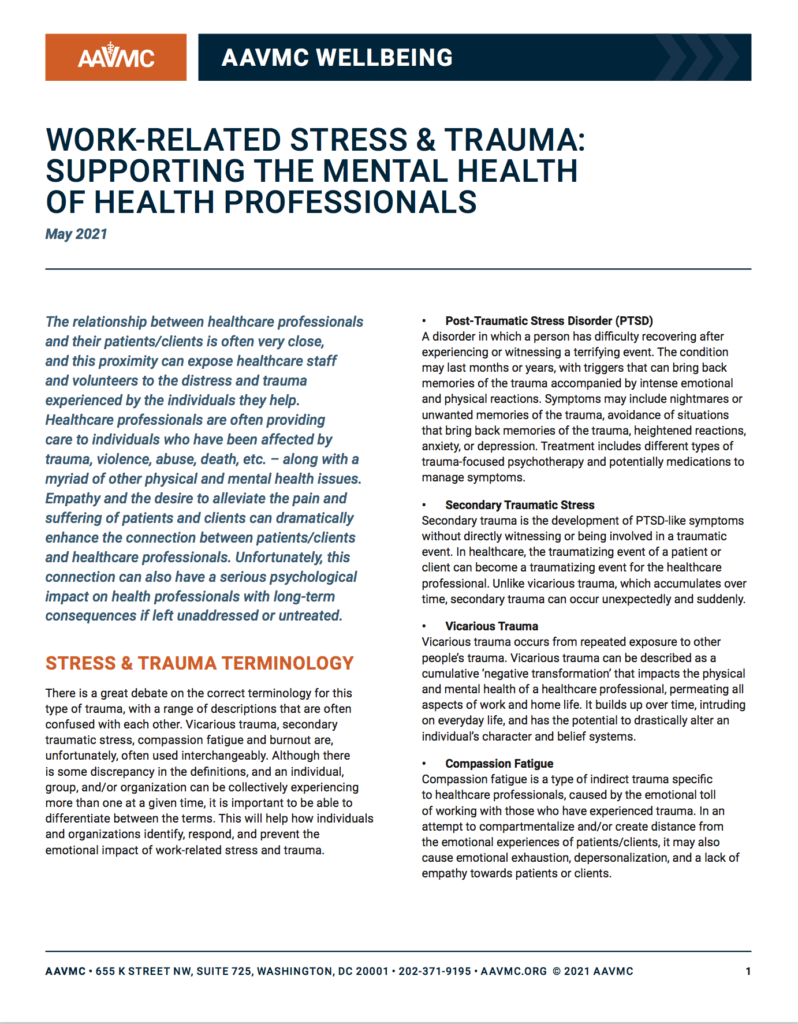





SHARE